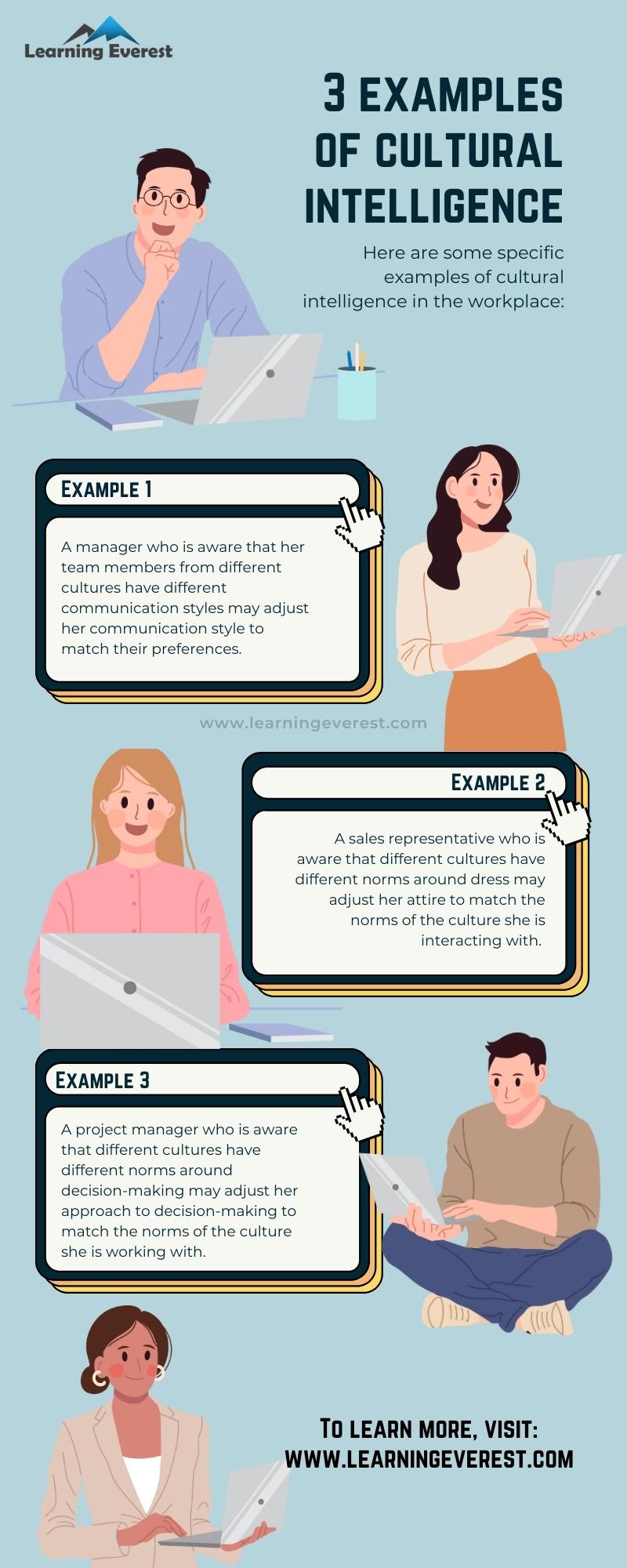In this article, we discuss cultural intelligence and how it impacts the workplace.
Table of Contents
What is cultural intelligence in the workplace?
Cultural intelligence is the ability to relate to people with culturally diverse backdrops and interact with them properly. As a culturally intelligent being, you should not only be aware of cultural diversity; you should also be capable of relating and adapting to people from different races, cultures, genders, religions, sexual orientations, (dis)abilities, and so on. When it comes to working in a modern workplace, this capability to relate to people with different cultural backdrops is very important. As large organizations often operate globally, their employees need to adapt to the respective cultures of their peers. It is a valuable skill that promotes effective communication, collaboration, and innovation in multicultural environments.
Components of cultural intelligence
There are three primary components to cultural intelligence:
Cognitive skills
This component of cultural intelligence involves the ability to recognize and understand a different culture and then adapt your behavior and approach. Using your cognitive skills also means developing new ways to research cultures to better understand them, often beyond the workplace.
Physical cues
This is the ability to reciprocate gestures to show that you understand and can communicate with other peoples’ cultures. By reciprocating these actions, you are engaging the physical component of cultural intelligence.
Emotional understanding
This component involves using personal efforts and self-determination to engage other people. Practicing your newly acquired cultural knowledge is the best way to make sure you have a successful interaction in a new cultural setting. The idea is to keep growing in confidence after a challenging encounter with different cultures.
How to encourage cultural intelligence in the workplace?
Building a cohesive, competitive, and compassionate workplace requires everyone to practice cultural intelligence. Follow these steps to encourage a workplace that values cultural intelligence:
Accept everyone’s unique opinions
Using cultural intelligence to observe and empathize with a colleague makes it easier to connect with them on several levels. If you are unsure about anyone’s behaviors or language, consider being open and honest about these to understand cultural differences.
Strive to learn more
Learning about and interacting with diverse cultures can help you improve and understand certain behavior or actions in the workplace. Cultural intelligence can assist in adapting to different cultures through:
- Understanding why certain things are done differently in different cultures can help you make more informed decisions
- Observing behavior through social media and memorizing different cultural practices to understand your colleagues effectively
- Keeping records of your observations to refer to when in doubt to ensure you’re regularly improving your cultural intelligence
Establish a conflict-solving practice
Cultural intelligence can help in identifying the sources of disagreements and establishing strategies to solve problems when they arise. You can also be proactive with culturally responsive training courses to minimize conflicts before they arise.
Why is cultural intelligence important in the workplace?
Here are some of the key benefits of cultural intelligence in the workplace:
It creates harmony
By enhancing cultural intelligence, team members become sensitive to different opinions and perceptions. When coworkers are adaptive and can adapt to each other’s cultures, they can develop a culture of harmony, which makes it easier to be productive in the workplace. Additionally, leaders with high cultural intelligence may find it easier to build a strong team bond. For example, team-building exercises can encourage members to understand each other’s strengths and weaknesses and allow them to work together to solve problems.
It improves communication
Cultural intelligence is a vital tool among the components of effective workplace communication, especially in a large organization with different cultural personalities. A culturally intelligent team can more easily understand each other and interact more effectively, resulting in less miscommunication.
It expands innovation
Organizations depend on their team’s ability to identify opportunities for innovation, such as developing and implementing new strategies to sell a product in a new territory. Cultural intelligence can develop one’s ability to adapt to an emerging demographic while also creating an environment in which everyone is comfortable to voice their opinions.
It builds rapport with customers and investors
Understanding the cultural outlook of your clients and business partners can help you gain their trust. Team leaders with enhanced cultural intelligence can manage employees, solve external conflicts, and institute policies that create a supportive environment for team members and partners. It is an asset to have a high level of cultural intelligence when negotiating with investors from different backgrounds, and it can help build lasting relationships with crucial business partners.
It encourages healthy competition
As globalization makes the world a more dynamic and competitive business environment, organizations that incorporate cultural diversity are more likely to attract businesses and top talent. This expanded diversity improves a company’s performance when competing within the global market by bolstering confidence in interactions outside of its domestic market.
Sounds interesting right? At Learning Everest, we can help you identify and develop a culturally intelligent workforce.
Need to know more? Drop us a comment below.
Infographic
Frequently Asked Questions (FAQs)
What is the purpose of cultural intelligence?
Cultural intelligence is a vital tool among the components of effective workplace communication, especially in a large organization with different cultural personalities. A culturally intelligent team can more easily understand each other and interact more effectively, resulting in less miscommunication.
What are the three elements of cultural intelligence?
There are three primary components to cultural intelligence: Cognitive skills, Physical cues, and Emotional understanding.
What are the 4 different types of culture?
The 4 types of culture are as follows – clan culture, adhocracy culture, market culture, and hierarchy culture.






